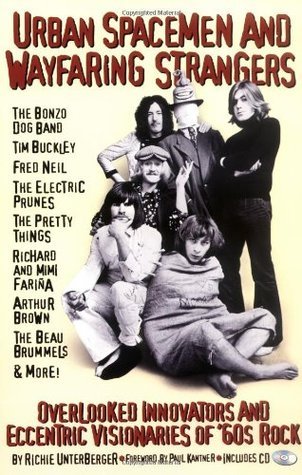What do you think?
Rate this book


296 pages, Paperback
First published October 30, 2000
"The place had been a roller-skating rink. It was on the second floor, and it had a couple-feet thick ball bearings in the floor. Don't ask me why. They were going to repossess {the organ}. David had a succession of managers that he picked, were just fabulously bad. This particular batch had really soaked us, so I decided I'd throw it off the stage and destroy it, 'cause it was like an eight-, nine-foot stage. I tossed it, it hit the floor, and it bounced, I don't know, eight feet in the air. It was a Hammond M-3. It went down, across the floor, and people scattered like this fucking train was coming through. It must have got about twenty, thirty feet out onto the floor, and it didn't destroy the fucking thing! So I did it again the next night, and when it hit the floor, it separated in two halves, and they flipped off in different directions. It was very spectacular."Those ball-bearings, by the way, make the ballroom floor springier, "like dancing on air." The Crystal Ballroom was restored in 2014 and is a popular dance venue again—or at least it was, before 2020 and a global pandemic.
—Chester Crill of Kaleidoscope, pp.87-88
We haven't retreated from 1968. Almost everything we believed in is correct. We're biding our time, and still keeping in shape. The world is going to hell in a computer; we need radical changes. The problem is no one knows quite what to do, since the old theories of Marxism and anarchism are rather inadequate. So we need a lot of new ideas and ways of putting them into reality.
And everybody who is reading this better get to work. That's my message.
—Tuli Kupferberg, p.107